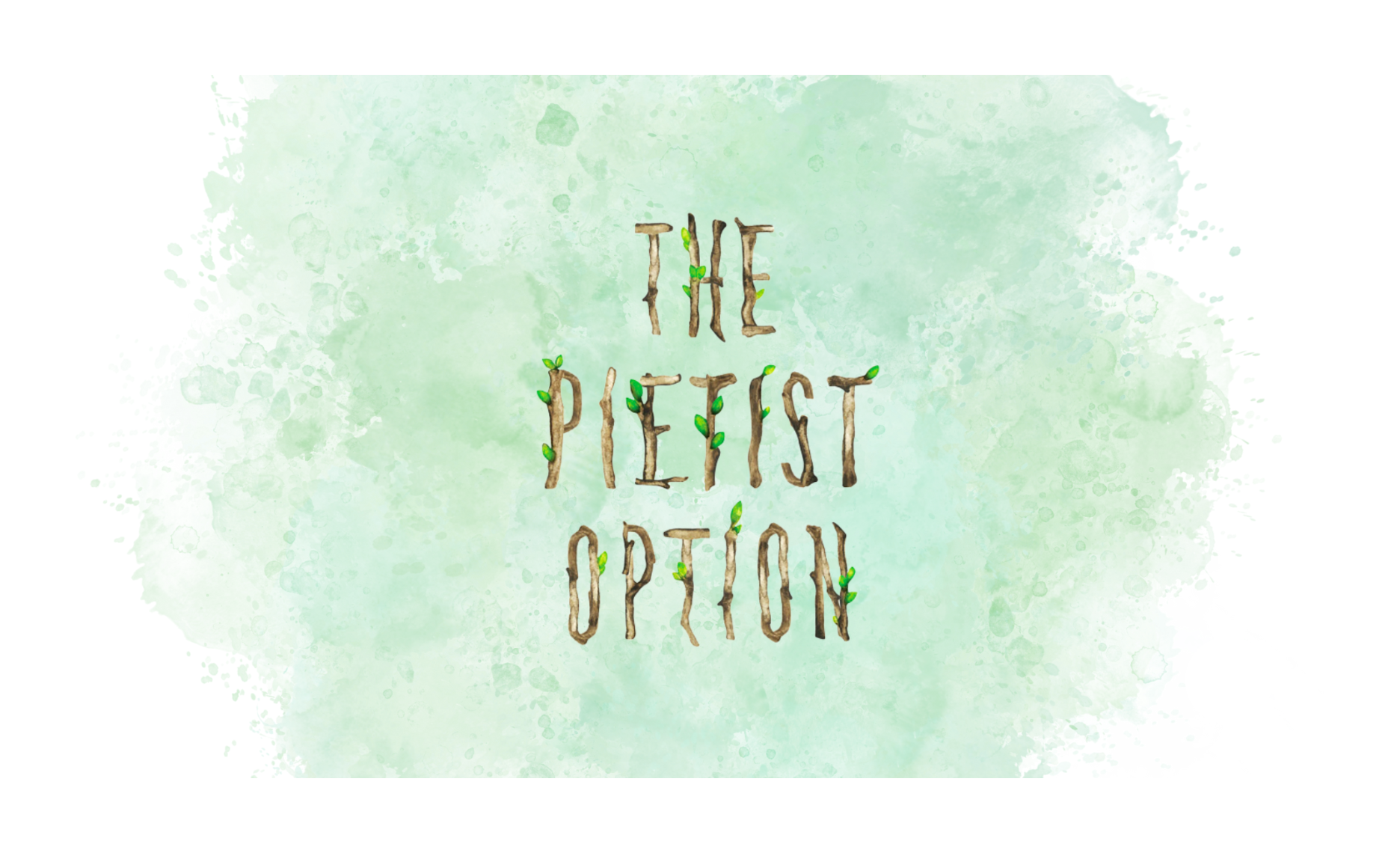
For your convenience, this discussion guide is available in a print-friendly format.
Introduction
In the late seventeenth century, when there was a rising suspicion among European Christians of faith that was too intellectual or too institutional, a movement flared brightly in response. Pietism is credited with warming the cold, bickering Christianity of its time, yet few know about it today. Maybe you feel as though we are in that same place now. Use this study guide to help you journey with a small group through The Pietist Option by Christopher Gehrz and Mark Pattie III, as we look to our history to see new possibilities for the future.
This six-week study guide accompanies The Pietist Option. Each week, participants are invited to engage with a Scripture passage and 1-2 chapters of the book, and then engage with one another in conversation rooted in Highrock’s values (honesty, humility, hospitality, curiosity, and solidarity). The questions have been adapted from questions the authors themselves created. At the end of the study, participants will have a deeper understanding of Pietism and will be encouraged towards action in living it out in a new way.